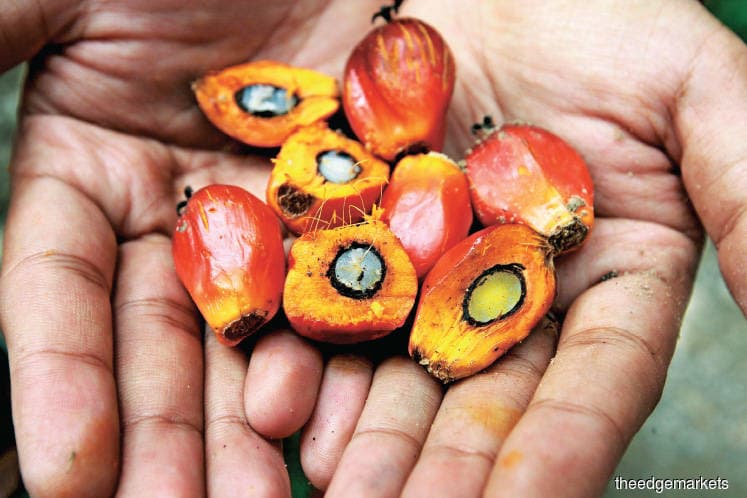
This article first appeared in The Edge Financial Daily on January 10, 2020
KUALA LUMPUR: While India’s move to restrict imports of refined palm oil from Malaysia could hurt local refiners of the vegetable oil, it is unlikely to be detrimental, said analysts.
The overall view is that the move could lead to some trade diversion effects of palm oil products for Malaysia, but the global dynamics of supply and demand for palm oil would not be drastically altered.
CGS-CIMB Research regional head of agribusiness Ivy Ng said although India is Malaysia’s biggest importer of refined palm oil, the latter also exports to 80 other countries.
“I don’t think this will significantly affect our exports. The trade of refined palm oil may be diverted to other countries. Despite the restriction, Malaysia can still export crude palm oil (CPO) to India,” she told The Edge Financial Daily.
“Of course, the best case scenario is if India would open its imports for both refined palm oil and CPO. But I think that this restriction would not be totally detrimental to Malaysia,” Ng added.
She is of the view that the import restriction is a move by India to support its local refiners. “There are currently too many Indian local refiners that are running their refineries on low utilisation rates. I see this move as a mean to help these refineries.”
Ng also believes that Malaysian refiners will keep on producing refined palm oil that fetch a higher margin compared with CPO.
PublicInvest Research, in a note to investors last October, said India has been Malaysia’s biggest palm oil buyer since 2014.
According to the Malaysian Palm Oil Board (MPOB), Malaysia’s palm oil exports to India almost doubled to 4.27 million tonnes between January and November last year from 2.23 million tonnes a year ago.
India’s ministry of commerce and industry on Wednesday issued a government notification declaring that the import of refined palm oil is amended from “free” to “restricted”.
The memo, which was sighted by The Edge Financial Daily, is believed to be an effective ban on imports of refined palm oil, meaning India can now only import CPO.
Another analyst, who declined to be named, said the restriction could potentially hit Malaysian refiners, while Indonesian growers will gain as it is the top CPO supplier to India.
“Nevertheless, we believe that Indonesia would not be able to fulfil all the orders from the Indian buyers given the tight supply situation as Indonesia moves towards its B30 biodiesel mandate.
“Moreover, there could be a shift in some buyers [such as China and Pakistan] buying more of Malaysia’s palm oil products,” the analyst added.
Yesterday, Reuters reported Palm Oil Refiners Association of Malaysia chairman Jamil Haron as saying that the restriction would lead to a loss of market share for Malaysia and spark a price war with rival supplier Indonesia.
This, Jamil reasoned, was due to the fact that Malaysia would now have to compete on crude palm sales to India, where Indonesia has traditionally been more cost-competitive. Malaysia and Indonesia account for 85% of global palm oil production.
CGS-CIMB Research’s Ng disagrees, noting that a price war happens when there is an excess of supply of palm oil and market reading suggests that CPO is currently facing a tight supply condition.
“I don’t see a price war [happening between Malaysia and Indonesia], especially now that we are going into the year in a low production season,” she said. The benchmark palm oil contract for March delivery on Bursa Malaysia Derivatives Exchange closed up 2.4% at RM3,113 per tonne yesterday.
In a report yesterday, Maybank Investment Bank Research said details of the exact restriction remain unknown at this juncture.
“Our channel checks suggest that restriction can be in the form of permit requirement or licence to import. Clarification and licence approval/issuance are likely to take time. This will likely result in India importers switching to CPO or in a worst case scenario, switching to other refined oils.
“Positively, India has traditionally been a bigger importer of crude oils which accounts for 81% to 85% of total imported vegetable oils,” it added.
The local research firm said as Indian importers switch to CPO, they will buy more from Indonesian growers as the latter are more price-competitive compared with Malaysian growers.
“The switch will likely hurt Malaysian refiners as processed palm oil accounts for over 70% of Malaysia’s total exports in recent years. Hence, we believe Indonesia will gain more market share at the expense of Malaysia with India’s latest restriction.
“In turn, this will result in a quicker build-up of MPOB’s stockpile when output starts to recover from the second quarter of 2020, and will cap CPO price upside as the world looks at MPOB’s stockpile as a proxy to the region’s overall stockpile in the absence of reliable Indonesian data,” it said.
Among the refiners in Malaysia, Maybank Investment Bank Research believes that Sarawak Oil Palms Bhd (SOPB) stands to lose more given its sizable refining capacity of 450,000 tonnes per year in Bintulu, Sarawak and India being one of its key markets.
As such, it has downgraded the stock to a “sell” rating from “buy”, with a target price (TP) of RM3.58. Meanwhile, TSH Resources Bhd and Ta Ann Holdings Bhd have been downgraded to “hold” from “buy”, with TP of RM1.47 and RM3.13 respectively.
Shares in SOP, TSH Resources and Ta Ann closed at RM3.95, RM1.49 and RM3.28 respectively.